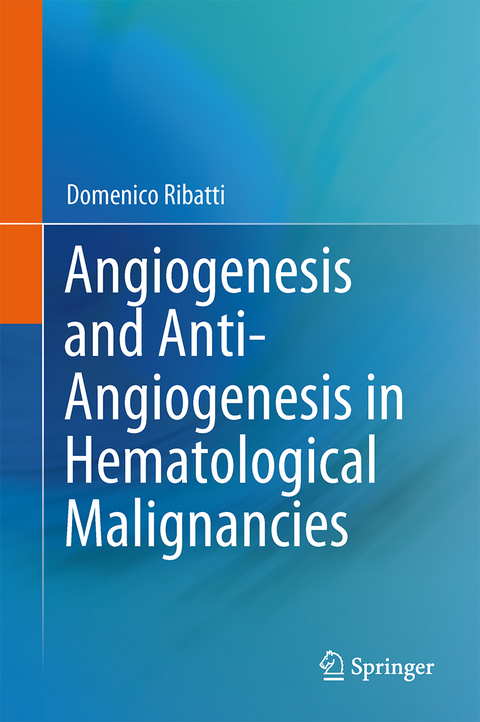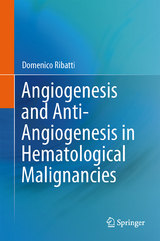Angiogenesis and Anti-Angiogenesis in Hematological Malignancies
Seiten
2014
|
2014 ed.
Springer (Verlag)
978-94-017-8034-6 (ISBN)
Springer (Verlag)
978-94-017-8034-6 (ISBN)
Angiogenesis and Anti-Angiogenesis in Hematological Malignancies
It has been generally accepted that angiogenesis is involved in the pathogenesis of hematological malignancies, like acute and chronic leukemia, lymphoma, myelodysplastic syndromes, myeloproliferative neoplasms and multiple myeloma. The extent of angiogenesis in the bone marrow has been correlated with disease burden, prognosis and treatment outcome. Reciprocal positive and negative interactions between tumor cells and bone marrow stromal cells, namely hematopoietic stem cells, fibroblasts, osteoblasts/osteoclasts, endothelial cells, endothelial progenitor cells, T cells, macrophages and mast cells, mediated by an array of cytokines, receptors and adhesion molecules, modulate the angiogenic response in hematological tumors. More recently, it has been emphasized the pro-angiogenic role of the so called “vascular niche”, indicating a site rich in blood vessels where endothelial cells and mural cells such as pericytes and smooth muscle cells create a microenvironment that affects the behavior of several stem and progenitor cells, in hematological malignancies.
It has been generally accepted that angiogenesis is involved in the pathogenesis of hematological malignancies, like acute and chronic leukemia, lymphoma, myelodysplastic syndromes, myeloproliferative neoplasms and multiple myeloma. The extent of angiogenesis in the bone marrow has been correlated with disease burden, prognosis and treatment outcome. Reciprocal positive and negative interactions between tumor cells and bone marrow stromal cells, namely hematopoietic stem cells, fibroblasts, osteoblasts/osteoclasts, endothelial cells, endothelial progenitor cells, T cells, macrophages and mast cells, mediated by an array of cytokines, receptors and adhesion molecules, modulate the angiogenic response in hematological tumors. More recently, it has been emphasized the pro-angiogenic role of the so called “vascular niche”, indicating a site rich in blood vessels where endothelial cells and mural cells such as pericytes and smooth muscle cells create a microenvironment that affects the behavior of several stem and progenitor cells, in hematological malignancies.
Preface.- Introduction.- Angiogenesis in multiple myeloma.- Angiogenesis in lymphomas.- Angiogenesis in leukemia.- Antiangiogenesis.- Concluding remarks.- References.
| Zusatzinfo | 30 Illustrations, color; 14 Illustrations, black and white; XI, 114 p. 44 illus., 30 illus. in color. |
|---|---|
| Verlagsort | Dordrecht |
| Sprache | englisch |
| Maße | 155 x 235 mm |
| Themenwelt | Medizinische Fachgebiete ► Innere Medizin ► Hämatologie |
| Medizin / Pharmazie ► Medizinische Fachgebiete ► Onkologie | |
| Medizin / Pharmazie ► Studium | |
| Naturwissenschaften ► Biologie | |
| ISBN-10 | 94-017-8034-X / 940178034X |
| ISBN-13 | 978-94-017-8034-6 / 9789401780346 |
| Zustand | Neuware |
| Haben Sie eine Frage zum Produkt? |
Mehr entdecken
aus dem Bereich
aus dem Bereich
Hämatologie und Internistische Onkologie
Buch | Softcover (2023)
ecomed-Storck GmbH (Verlag)
CHF 179,95
Buch | Softcover (2024)
Urban & Fischer in Elsevier (Verlag)
CHF 73,00




